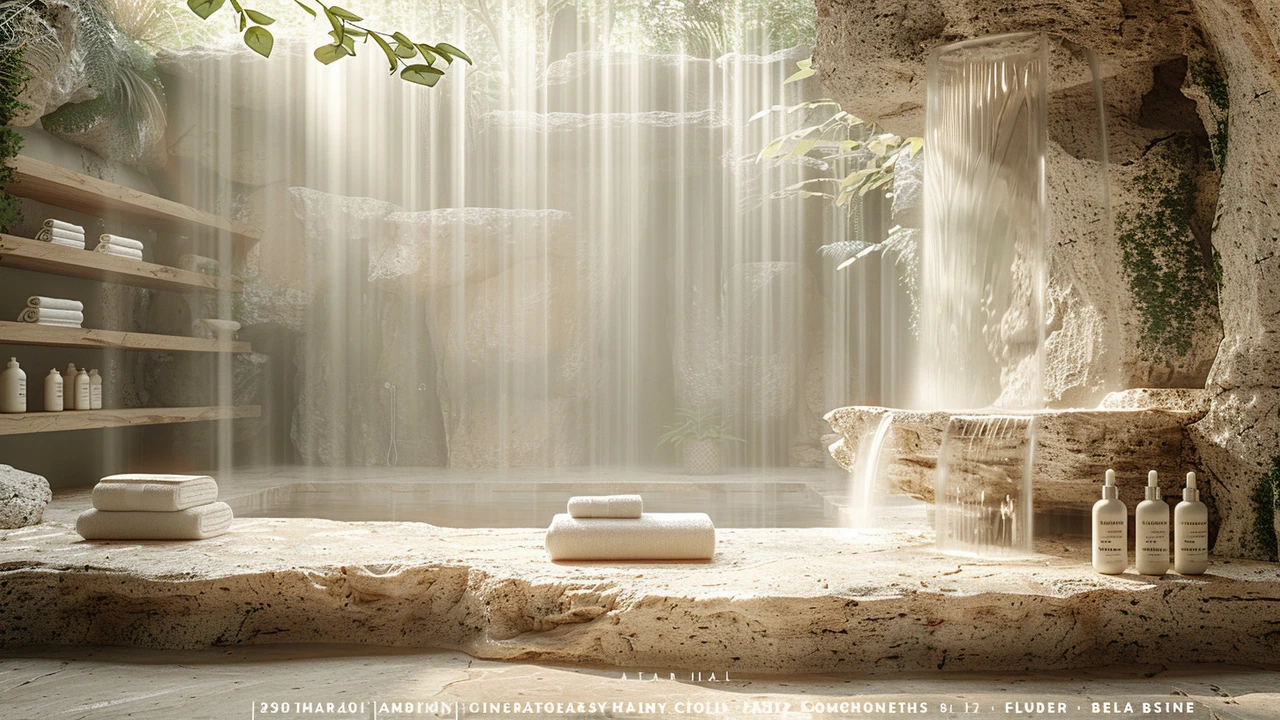Understanding Aromatherapy and Its Place in Beauty
Aromatherapy, the practice of using essential oils for therapeutic benefit, has found a unique and powerful station within the beauty industry. Historically, the use of aromatic plants dates back thousands of years, with civilizations like the Egyptians and Romans recognizing their benefits for both health and aesthetics. Fast forward to today, and the narrative remains largely unchanged, yet significantly advanced. The beauty sector, always on the lookout for holistic approaches to care, has embraced aromatherapy, weaving it into products ranging from skincare and makeup to spa treatments.
The beauty of aromatherapy lies in its versatility. Essential oils, extracted from flowers, leaves, bark, and roots, carry distinctive therapeutic properties. When applied to skin care, these properties can do wonders. For example, lavender oil is lauded for its calming and antibacterial qualities, making it a staple in products targeting stress relief and acne prevention. Similarly, tea tree oil's potent antiseptic properties make it a powerful weapon against breakouts. But the impact of these oils goes beyond skin-deep. Inhalation of these aromatic compounds has been shown to influence the part of the brain responsible for controlling moods, thereby promoting mental well-being alongside physical health.
The Science Behind Aromatherapy in Beauty
The science backing aromatherapy's efficacy is compelling. Research indicates that when essential oils are absorbed through the skin or inhaled, they interact with the body's limbic system, a key player in controlling emotions, heart rate, blood pressure, and stress levels. This interaction paves the way for a holistic approach to beauty, where mental and physical states are harmonized for an overall sense of wellness.
Moreover, studies highlight specific benefits of various essential oils. For instance,
research published in the International Journal of Dermatology found that sandalwood oil can help in reducing skin inflammation and promoting moisture retention,invaluable for those with dry or irritated skin. On the relaxation front, a study in the Journal of the Medical Association of Thailand demonstrated how inhaling bergamot oil could significantly reduce stress and anxiety levels in participants.
Integrating Aromatherapy into Your Beauty Routine
Adopting aromatherapy into a beauty regimen is both an art and a science. It starts with understanding your skin's needs and your mental well-being goals. For those new to aromatherapy, it's advisable to begin with less concentrated products, such as those infused with essential oils, to gauge how your skin and senses respond.
A simple way to incorporate aromatherapy into daily beauty practices is through skincare products enriched with essential oils. Serums, moisturizers, and toners containing oils like rosehip for anti-aging, peppermint for invigoration, or chamomile for soothing, offer a practical approach. Another popular method is the use of aromatic bath oils or salts during baths, which not only nourish the skin but also provide a tranquil retreat.
The Role of Aromatherapy in Professional Beauty Treatments
The incorporation of aromatherapy into professional beauty services has transformed spa visits into holistic healing sessions. Facials, massages, and body treatments are now often complemented with essential oils tailored to the client's emotional and physical needs. This bespoke approach enhances the effectiveness of treatments, making them not just skin-deep but also profoundly rejuvenating for the mind.
Beauty therapists are now increasingly trained in aromatherapy to better serve this growing demand. They're equipped to blend oils, customize treatments, and offer advice on at-home aromatherapy practices, making the integration of this ancient practice into modern beauty regimes seamless and effective.
Aromatherapy's Impact on Mental Well-being
The role of aromatherapy extends beyond the physical to significantly impact mental health. The calming effect of inhaling certain oils, like lavender or ylang-ylang, can greatly reduce stress levels, improve sleep quality, and even alleviate symptoms of depression and anxiety. This dual benefit makes aromatherapy a compelling addition to beauty routines focused on overall well-being.
In today's fast-paced world, where stress is a common ailment, aromatherapy offers a natural and accessible way to relax and rejuvenate, proving that beauty and wellness are inextricably linked. As more people recognize this, the integration of essential oils into beauty routines becomes not just a trend but a lifestyle shift towards holistic health.
Future Trends in Aromatherapy and Beauty
The future of aromatherapy in the beauty industry looks bright, with ongoing research delving deeper into the benefits and applications of essential oils. As consumers become more informed and conscious of their health and wellness, the demand for natural, holistic beauty solutions is set to rise. This is driving innovation in how aromatherapy is incorporated into products and treatments, making it more accessible and tailored to individual needs.
As we move forward, we can expect to see even more personalized aromatherapy solutions, ranging from technologically advanced diffusers to apps that recommend essential oil blends based on your mood or skin condition. The potential of aromatherapy in enhancing beauty and wellness is vast, marking just the beginning of its integration into our lives.
